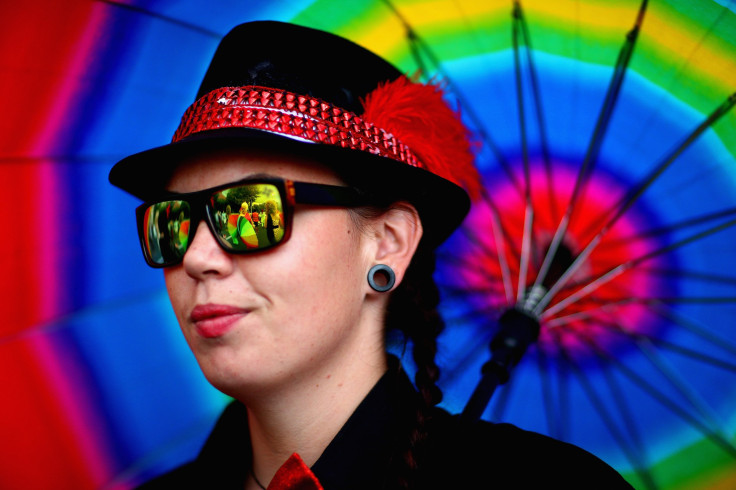French Court Recognizes Third Gender Option In Landmark Victory For Intersex Rights

A high court in France has officially recognized a third gender option in a case that’s being described in the country as a crucial victory for intersex rights. The intersex individual, who was born with both male and female genitalia, has won the right to register as gender neutral.
The landmark case was brought before the court in the city of Tours, the capital of the Indre-et-Loire department in France, by a 64-year-old person who has requested to remain anonymous. The person was assigned male at birth despite having ambiguous genitalia and realized during puberty that they didn't feel right with the classification.
"For 64 years I've lived with both sexes,” the plaintiff told the French media outlet 20 Minutes. “Today, I finally have the feeling of being recognized for what I am."
Now, the plaintiff can change their gender status from “male” to “neutral.” The ruling has established legal precedent for people born with ambiguous genitalia. It does not cover transgender or genderqueer French citizens who do not identify as male or female. About two in every 100 babies are born with bodies that differ from standard male or female, according to research by Brown University.
In the ruling, the presiding judge wrote that the sex assigned at birth "appears as a pure fiction,” according to documents that 20 Minutes obtained. "It was imposed upon him for his entire existence without him ever being able to express his deepest feelings.”
The ruling has been labeled as a small but important win for the intersex community and other nonbinary groups like the transgender community.
But state prosecutors have filed to appeal the ruling, seeking to establish that the court's decision did not equate to de facto national recognition of a third gender. According to 20 Minutes, the deputy attorney of Tours said, "We're not in the role of the legislator to create the law where it does not exist yet or to change the points that already exist."
However, he said he did sympathize with the person who has won the gender-neutral designation.
“[Gender assignment surgery] is not being done in the child's best interests, but in the interest of the parents and the society that has provided two boxes to check, a male and a female,” said Mila Petkova, the lawyer who brought the case to court in Tours, said.
The decision comes just days before Intersex Awareness Day, Oct. 26.
Trend #intersex October 26 pic.twitter.com/pw4aE6KZ1y
— Pidgeon_Oct 26_#IAD (@pidgejen) October 4, 2015At least 10 other countries recognize nonbinary gender or sex options in some official capacity: Germany, Bangladesh, India, Pakistan, Nepal, New Zealand, Australia, Ireland, Denmark and Malta.
© Copyright IBTimes 2024. All rights reserved.





















